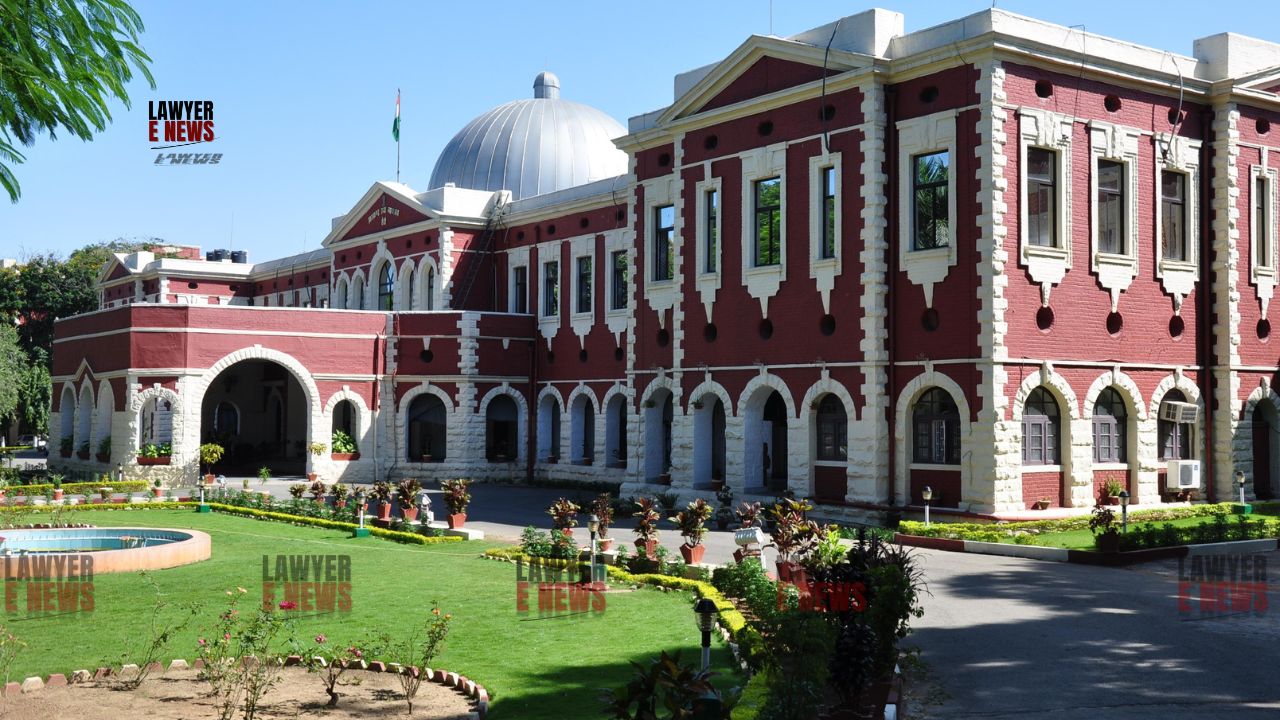-
by Admin
15 February 2026 5:01 PM



Dubious and Arbitrary Actions of Public Authorities Cannot Defeat Legitimate Claims of Citizens - Jharkhand High Court overturned a Single Judge's dismissal of a writ petition seeking a refund for industrial land allotment. The Court held that the respondents—Ranchi Industrial Area Development Authority (RIADA) and Jharkhand Industrial Area Development Authority (JIADA)—failed to deliver actual possession of the land, rendering their actions arbitrary and violative of Article 14 of the Constitution. The Court directed a full refund of the payment with 9% interest and costs of Rs. 25,000 to the appellant.
The appellant, Sunil Kumar Agarwal (legal heir of the original writ petitioner), sought a refund of Rs. 11,11,705 paid for the allotment of industrial land in Patratu under an allotment letter dated June 28, 2016. Despite payment, the petitioner was not given physical possession of the allotted plot (Plot 5A) due to encroachments and disputes involving local villagers.
The respondents claimed that possession was delivered in 2017 via a "physical possession certificate," but subsequent correspondence revealed that they sought police assistance to resolve disputes preventing access to the land. The petitioner repeatedly demanded possession or a refund, and eventually filed a writ petition, which was dismissed on July 9, 2024, on grounds of disputed facts.
The appellant challenged the dismissal, arguing that the authorities acted arbitrarily and failed to meet their obligations, as evidenced by their own letters seeking assistance to secure possession of the land.
The Single Judge dismissed the writ petition, citing disputed facts regarding whether possession was delivered. However, the Division Bench held that courts can adjudicate disputes based on documentary evidence without requiring oral testimony or elaborate factual determinations.
Citing Gunwant Kaur v. Municipal Committee, Bhatinda (1969) and ABL International Ltd. v. Export Credit Guarantee Corporation of India Ltd. (2004), the Court observed:
“Merely because a question of fact arises does not preclude the High Court from exercising writ jurisdiction, especially where documentary evidence suffices to resolve the dispute and the actions of public authorities are arbitrary or unreasonable.”
The respondents argued that possession was delivered in 2017, supported by a "physical possession certificate" signed by the petitioner. However, the Court found that:
The petitioner continued to demand possession in subsequent letters, including one dated August 28, 2018, where the respondents themselves admitted the presence of encroachments and sought police assistance.
No date of actual physical possession was provided by the respondents, and their claim was contradicted by their own correspondence.
The Court concluded that the possession certificate was merely a formality and that actual possession was never delivered.
The Court criticized the respondents for their arbitrary actions, observing:
“This is a classic case where a dubious, false, and vexatious defense has been set up by the respondents to deny the legitimate claim of the petitioner. Such conduct violates the principles of fairness and reasonableness enshrined in Article 14 of the Constitution.”
The Court emphasized the obligation of public authorities to act as "model litigants" and refrain from raising frivolous or technical defenses to obstruct justice, citing Popatrao Vyankatrao Patil v. State of Maharashtra (2020).
The respondents argued that only 55% of the amount was refundable under Clause 22(1)(i) of the JIADA Regulations, which applies to voluntary surrender of land. The Court rejected this argument, holding that the clause was inapplicable as the petitioner never surrendered the land voluntarily. Instead, the refund was necessitated by the respondents’ failure to deliver possession.
The High Court allowed the appeal, set aside the Single Judge’s judgment, and directed the respondents to:
Refund the Entire Amount Paid: The respondents were ordered to refund Rs. 11,11,705, less any amounts already refunded, with interest at 9% per annum from March 15, 2017, until the date of payment.
Pay Costs: An additional Rs. 25,000 was awarded as costs to the appellant.
Timeline: The payment was ordered to be completed within eight weeks.
The judgment concluded:
“Public authorities must act fairly and transparently. Their failure to deliver possession and subsequent attempts to evade responsibility through false and arbitrary defenses are deplorable. The appellant is entitled to a full refund with interest and costs.”
Key Takeaways from the Judgment
Maintainability of Writ Petitions: The High Court reaffirmed that writ petitions can address disputed facts when supported by documentary evidence, especially in cases involving arbitrary actions by public authorities.
Accountability of Public Authorities: The judgment reinforces the obligation of public bodies to act as model litigants and avoid frivolous defenses.
Refund Obligations: Regulations limiting refunds (e.g., Clause 22(1)(i) of JIADA Regulations) are inapplicable when possession is not delivered due to the authority’s fault.
Compensatory Relief: Courts can award interest and costs to redress delays and arbitrary actions by public bodies.
Date of Decision: December 10, 2024
